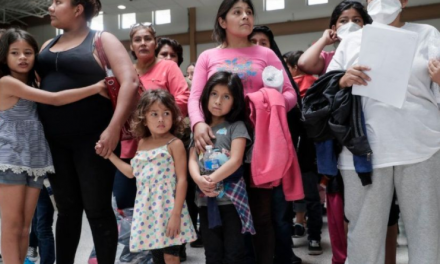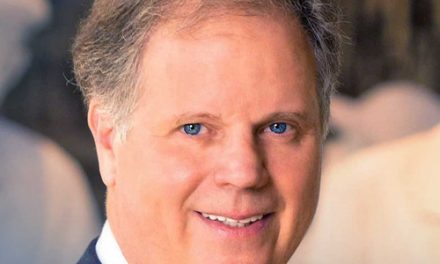This is the concluding post in our series on the Role of the Moral Theologian in Church and Society. You can read the introduction to the series and find links to all of the entries here.
I am grateful to all of the authors who participated in this series. The very fine essays from Robert Gascoigne, Alexandre Martins, Roman Globokar, Veronica Rop, David Cloutier, and Agnes Brazal have given us much to think about and have highlighted the diverse ways that moral theologians serve the church and societies around the world. Of course no one person can speak definitively for an entire continent. Rather, the idea here was to collect a set of samples or snapshots from specific contexts about questions that all moral theologians must answer in the way that we live and the way that we work: What is our role in the church and in society? What is the nature of our vocation? Whom are we meant to serve? What sort of “service” should theologians provide? Hopefully this brief series will be the first of many opportunities for international dialogue among moral theologians about these and other questions.
What has this series uncovered in terms of the work that moral theologians do worldwide? Several contributors suggest that moral theologians serve a mediating role between church and culture. For example, Gascoigne writes that “the role of the moral theologian is to communicate the Church’s moral tradition in a way that is inspired by Gaudium et Spes’ methodology of reflective dialogue with the modern world.” Similarly, Globokar writes that moral theology should be “a bridge between the rich moral tradition of the Church and the contemporary secular society.” The image of a bridge implies two-way traffic. Moral theologians attempt to communicate the wisdom of the Catholic moral tradition in ways that are intelligible in the local context, but they also strive to discern ways that the church and its moral tradition might be enhanced by this encounter with the world.
The exact shape of this mediating role will vary from place to place. Veronica Rop emphasizes the importance of noting the near total absence of experiences and insights from an African context as well as the underrepresentation of women from any cultures in the “long experience of life, thoughts of generations, and writings of theologians” that have shaped Magisterial teaching. Thus an important task of African moral theologians is to add insights from these neglected voices and sources to the global church’s moral tradition even while simultaneously drawing from that tradition to interrogate local customs and beliefs. Similarly, Agnes Brazal described the important work of Dionisio Miranda, SVD who has attempted to make Christian ethics culturally intelligible in the Philippines by using concepts of the self and human nature that exist in the local culture to explain Christian beliefs about conscience and virtue. This important work contributes to the task of undoing some of the cultural imperialism that accompanied the spread of Christianity and can ultimately enrich the global church’s understanding of categories such as conscience, virtue, and so on. Where the local context is shaped by a culture of secularism (as in Europe), mediation will largely entail trying to explain Catholic views on moral issues by engaging in rational reflection where “nothing is taken for granted, but it is necessary to justify any position” (Globokar). Whether theologians are using the concept of loob-makatao in the Philippines or engaging the European categories of “rationality”, the endeavor is similar: “to present the moral teaching to modern men and women in a way that he/she could understand it and accept it as a liberating path for his/her life” (Globokar).
I do not think that any of the contributors to this series would disagree with the claim that moral theology is inherently dialogical. There should be some kind of engagement with the world, but what that looks like is understood in very different ways in these posts. Martins frames this task in terms of engaging reality by intentionally placing oneself in proximity with the poor and participating in their lives. Morality is not abstract but can only be understood by actual engagement with concrete reality. For Martins, dialogue takes place when theologians bring the Catholic moral tradition into an encounter with the lived experiences with the poor. The tradition at once sheds light on the situation but is also to be reshaped and re-formed by the encounter. Dialogue continues when theologians bring what they learn from this engagement with reality to the broader church and society. Thus, for Martins, dialogue requires locating yourself out in the world and among the poor. In contrast, Globokar’s reflection suggests that the dialogical encounter takes place primarily in the seminar room or in venues like National Bioethics committee where theologians engage in “reasoning on specific issues and [in] trying in a dialogical way to find convincing rational arguments in confrontation with other positions.” Both Globokar and Martins are describing ways to locate oneself consciously in the world and to be attentive to concrete reality, and yet the immensity of the world is apparent here as is the need to choose exactly which “world” (the barrio, the boardroom, the academic institute, the government) to inhabit and engage.
David Cloutier suggests another model of engagement altogether. Although it is clear that he envisions theologians engaging in discussion and debate with colleagues in the academy and addressing the broader society via scholarship, popular books, blogs (as co-editor of this site, for example!), etc., he suggests a model of engagement that I would call “witness.” Whereas many of the other contributors to the series envision moral theology as engaging a(n intellectual) tradition and articulating that tradition in new ways, Cloutier suggests that moral theology should be more focused on the church and its practices. In this model, the church does not engage the world via conversation but rather via the way it worships and models what a life of discipleship looks like. As such, the central task of moral theologians in Cloutier’s view is to renew the vitality of parish life and to strengthen ecclesial practices. It may not be immediately apparent how this model is dialogical or in conversation with the world, but perhaps the reality is that this approach relocates the venue for dialogue and encounter. In this model moral theologians do not serve directly in a mediating role between church and society; rather, they clarify the demands of discipleship for Catholics who in turn endeavor to live more consciously according to those demands. The lives of everyday Catholics and their existence as a community become the primary and most important way to mediate the meaning of Christianity and its moral tradition to the world. The church serves society by being the church.
An obvious point that we could take away from this series is that each of us needs to work in ways that are appropriate to our social/cultural situation. The problems facing theologians in Slovenia are not the same as the challenges facing theologians in North America, or Brazil. It is right and even necessary for us to embed ourselves deeply in our own “world” – the culture in which we live, our local church, our academic institutions, etc. and to prioritize the concerns that arise out of that very specific context. To be effective and to be true to our vocation we must attend to the places we inhabit and the people we live among. And yet I think that this series also points to the importance of looking beyond our own context and considering the global church and people around the world when we theologians try to figure out how to live out our professional vocations.
The challenge to be attentive to concerns beyond my own immediate context became most apparent to me as I was reflecting upon Alexandre Martins’ essentially liberationist Latin American perspective in this series. As he notes at the beginning of his post, Martins lives and works in “a part of the world that suffers because of social injustice and inequalities.” Living in such a context, he believes that moral theologians “should come to understand their role in church and society from the perspective of those who live in situations of vulnerability and poverty and the theologian should assume a role of advocacy towards liberation.” Martins goes further to say that “the moral theologian cannot understand their role from the poor’s perspective if they remain distant from where the poor live.” On the one hand, Martins is writing out of and for his own very specific context in Brazil. In his reading of the demands of Brazilian society and Latin America more broadly, this is what he (and other theologians) must do. On the other hand, as I was reading Martins’ essay from my own location of relative privilege in New York I could not help but be challenged by his account of how theologians should work and live. I found myself asking whether Martins’ challenge to live among the poor and to be in dialogue with their reality was not just true for theologians in Brazil, but for all of us. Shouldn’t this be on the agenda of every moral theologian including me? And yet as the other essays made clear, there is vitally important work to be done that does not necessarily engage issues of poverty directly. How are we to manage this tension? How am I to balance the demands of my local context with the moral imperative to be attentive to the pressing needs of my brothers and sisters elsewhere in the world? This is but one important question raised by this series that deserves ongoing consideration. I hope that this is the beginning and the not the end of our conversation.






Trackbacks/Pingbacks